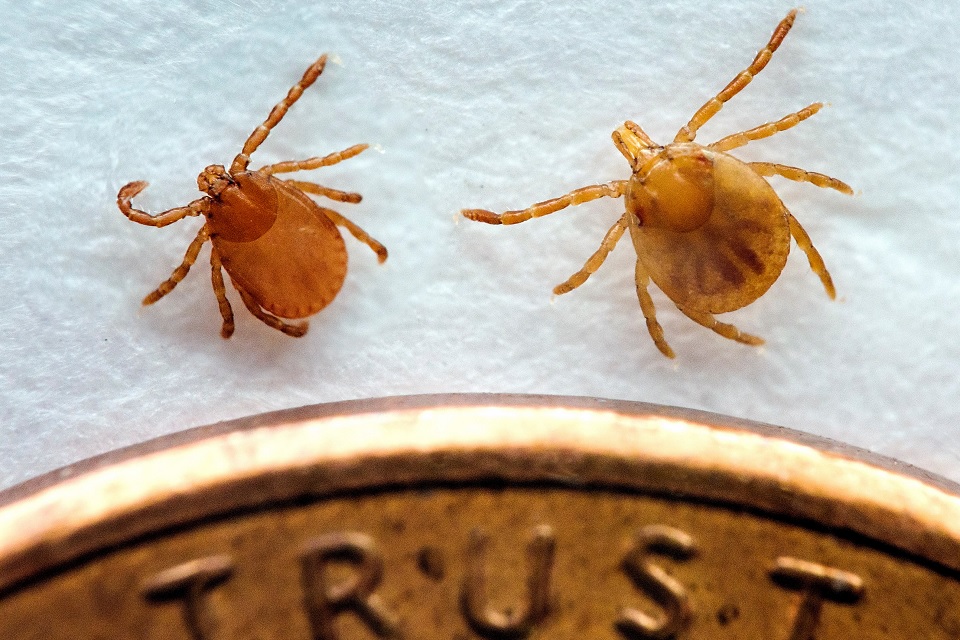
NASHVILLE – The Tennessee Department of Agriculture, United States Department of Agriculture – Animal and Plant Health Inspection Services, Tennessee Department of Health, and University of Tennessee Institute of Agriculture (UTIA) today announced the detection of the invasive Asian longhorned tick in Tennessee.
The Asian longhorned tick has now spread to 11 states. The Centers for Disease Control and Prevention reports that there is no evidence that the tick has transmitted pathogens to humans or animals in the U.S.
Two Asian longhorned ticks were recently found on a dog in Union County, and five were found on a cow in Roane County. In the U.S., the tick has been reported on 17 different mammal species.
“Tennessee has a relatively large amount and variety of ticks,” Dr. R.T. Trout Fryxell, Associate Professor of Medical and Veterinary Entomology for UTIA, said. “It is important to be diligent and keep an eye out for all ticks because many varieties can transmit pathogens or cause painful bites.”
Tips to prevent tick bites in animals and livestock include:
• Coordinate with your veterinarian to determine appropriate pest prevention for pets and livestock.
• Check pets and livestock for ticks frequently.
• Remove any ticks quickly by pulling from the attachment site of the tick bite.
• Monitor your pets and livestock for any changes in health.
If you or your animals are bitten by a tick, Dr. Trout Fryxell suggests putting the tick in a ziplock bag, writing down the date and where the tick was most likely encountered, and storing it in a freezer. If any symptoms of a tick-borne disease begin to develop, you should bring the tick to your doctor or veterinarian.
For additional information about the longhorned tick in the United States, visit www.aphis.usda.gov/publications/animal_health/fs-longhorned-tick.pdf. To find more information on tick-borne diseases, visit www.health.ri.gov/ticks/.